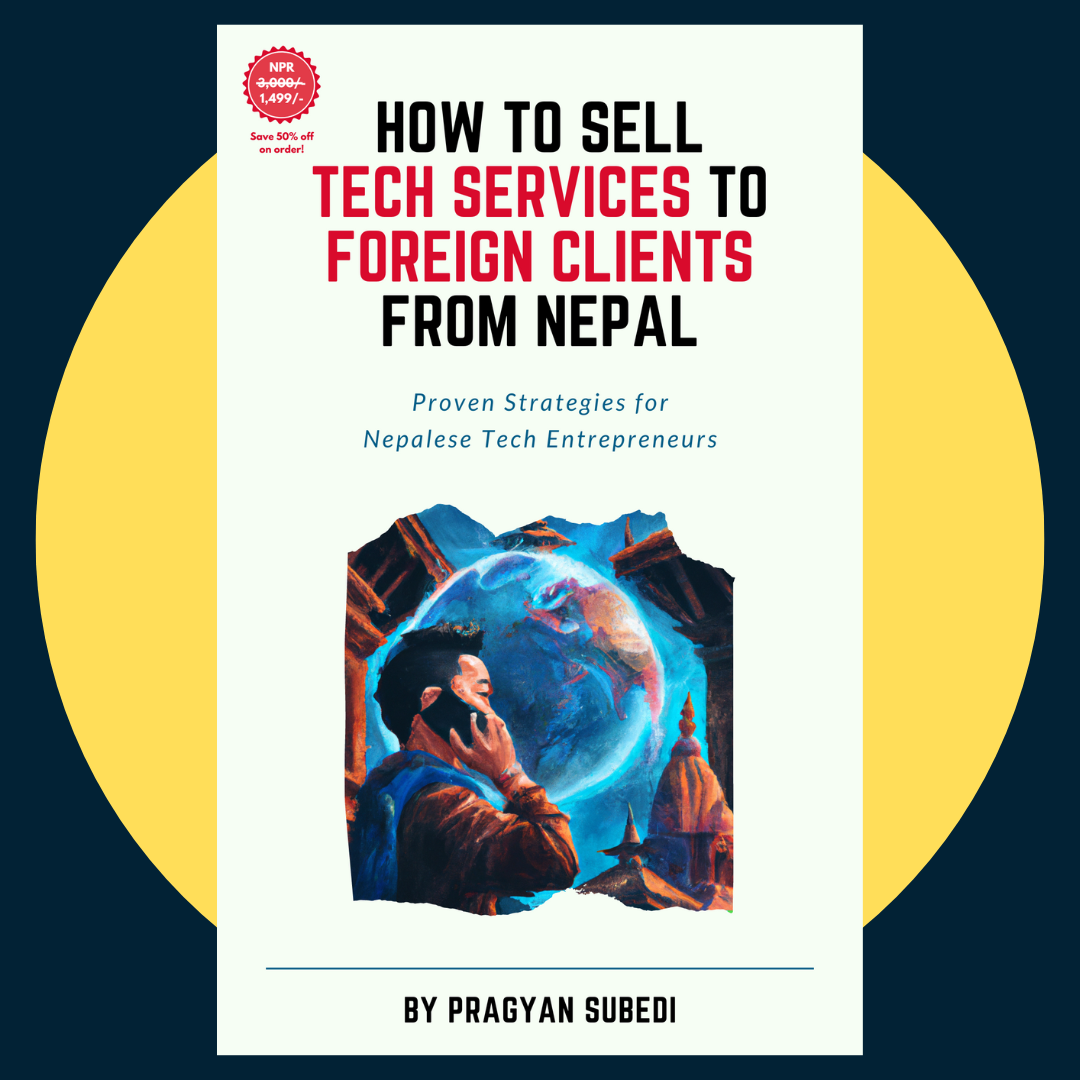Looking to learn how to sell tech services to foreign clients from Nepal? Get half a decade of experience in a day. Check out the book!
When aspiring professionals ask serial entrepreneurs whether they should start a startup, the general response they get is, “If you can, you should”.
However, this is a biased answer that is backed by subjective experiences.
Here’s how you can tell:
- If you ask a professional football player if you should start a career in football, s/he will most likely say, “If you can, you should”.
- If you ask a seasoned chef if you should start a career in cooking, s/he will most likely say, “If you can, you should.”
- and similar.
In short, professionals with a strong affinity for their careers will most likely advocate for it. And, asking for advice from such people may not be the best way to find the answer you are looking for.
So, whose answer should you seek to determine whether you should start a startup?
The answer probably lies in asking an objective observer rather than a missionary of the cause.
- In the case of football, the team coach carries a great objective lens when picking players in the starting eleven.
- In the case of cooking, the restaurant manager carries a great objective lens when scouting for new cooks who can later take on the rank of chef.
These objective observers will provide you with a clear-cut answer on where you lack given their job entails them to rely on objective experiences rather than subjective ones.
So, if you have the question, “Should I start a startup?”, you should probably ask an early-stage investor for direct advice—after all, it is their job to look at founders objectively.
Mind this, they may not be right in discerning you as a startup founder.
However, they will at least provide you with objective metrics as to why they think you’re not ready for building a startup and this is better than the template answer, “If you can, you should.”
So, what does an early-stage investor look for in a first-time founder?
As an objective observer (early-stage investor), here are some of the objective metrics I look at when answering, “Should I start a startup?” that point to an immediate “YES”:
- You’ve interacted with a set group of people for a prolonged amount of time such that you can easily list out their problems. Your first startup may as well be built around serving this same set of people.
- You have an idea that you cannot let go of. If someone can convince you your startup idea isn’t the right one, you are not ready to build a startup around that idea. You lack the insights to hold your ground.
- You find it unbearable to work anymore under other people’s management.
- You come from a family history of entrepreneurship or you have a role model that is an entrepreneur by heart. Roots and heroes are perpetual sources of motivation for a first-time founder.
- You have displayed resilience in past projects and have come ahead of those situations.
- You are ready to stop honing in on your primary craft and are rather willing to learn new crafts.
Remember, you can use these objective metrics to pause, self-reflect, work on filling in your gaps and then, start a startup.
Or, you can fill your gaps on the job. No harm done.

